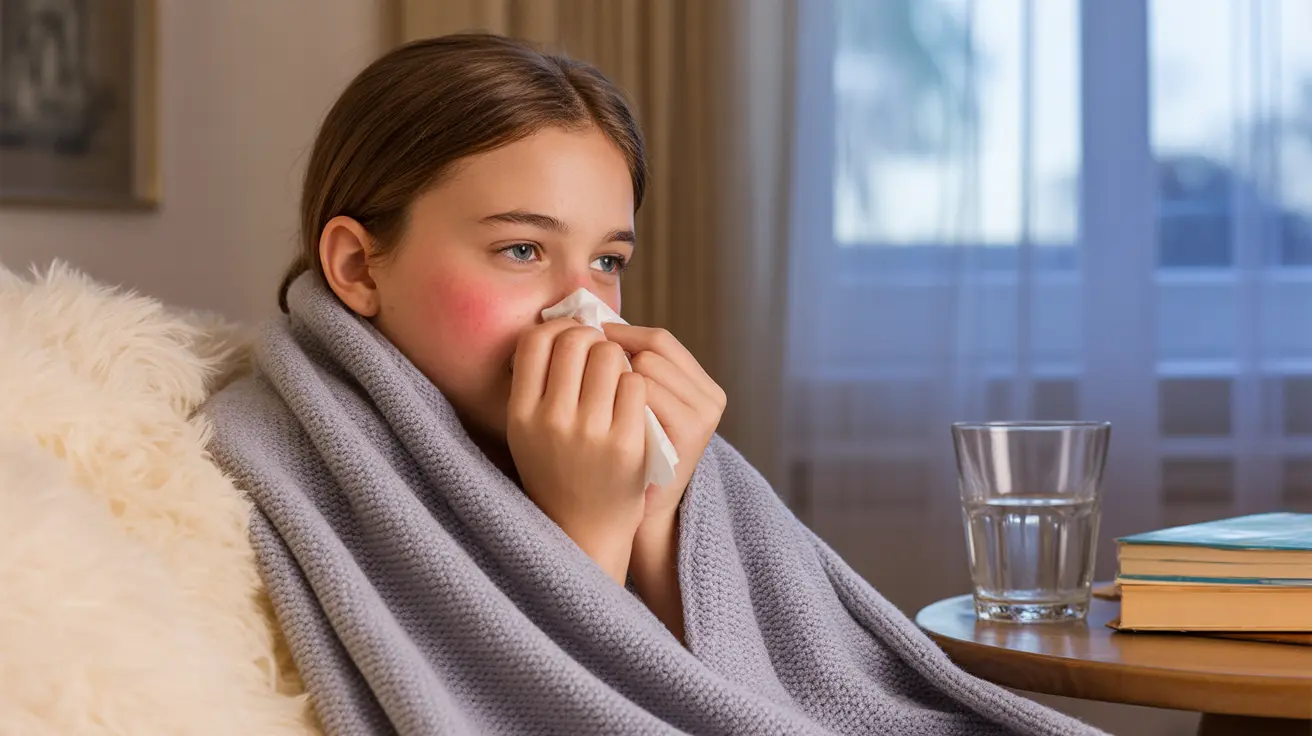Respiratory syncytial virus (RSV) infection in teenagers is more common than many people realize. While RSV often receives attention for its impact on infants and young children, teens can also experience significant symptoms and complications from this respiratory virus. Understanding how RSV affects adolescents is crucial for proper recognition, treatment, and prevention.
This comprehensive guide explores the key aspects of RSV in teenagers, including symptoms, transmission, treatment options, and when to seek medical care. Whether you're a parent, caregiver, or teen, knowing what to watch for can help ensure appropriate care and recovery.
Recognizing RSV Symptoms in Teens
RSV symptoms in teenagers typically develop gradually and may initially resemble a common cold. Common signs include:
- Runny or stuffy nose
- Dry cough that may become productive
- Mild to moderate fever
- Sore throat
- Headache
- Fatigue
- Decreased appetite
Symptoms usually appear 4-6 days after exposure and can last for 1-2 weeks. While most teens experience mild symptoms, some may develop more severe complications, particularly those with underlying health conditions.
How RSV Spreads Among Teenagers
RSV is highly contagious and spreads easily in environments where teens commonly gather, such as:
- Schools and classrooms
- Sports facilities and team practices
- Social gatherings
- Public transportation
- Shared living spaces
The virus primarily spreads through respiratory droplets when an infected person coughs or sneezes. It can also survive on surfaces for several hours, making indirect transmission possible through touching contaminated objects and then touching the face.
Prevention Strategies for Teens
Preventing RSV transmission among teenagers involves several key practices:
- Regular handwashing with soap and water
- Using hand sanitizer when soap isn't available
- Avoiding touching face with unwashed hands
- Covering coughs and sneezes
- Staying home when sick
- Maintaining good overall hygiene
- Regular cleaning of frequently touched surfaces
Managing RSV at Home
Most cases of RSV in teens can be managed effectively at home with supportive care measures:
- Getting plenty of rest
- Staying well-hydrated
- Using over-the-counter pain relievers for fever and discomfort
- Using saline nasal drops or sprays
- Running a cool-mist humidifier
- Avoiding smoke exposure
When to Seek Medical Care
While most teens recover from RSV without complications, certain symptoms warrant immediate medical attention:
- Difficulty breathing or rapid breathing
- Severe cough that interferes with daily activities
- High fever that persists
- Signs of dehydration
- Bluish color around the lips or fingernails
- Chest pain or wheezing
- Symptoms that worsen instead of improving
Special Considerations for High-Risk Teens
Some teenagers face higher risks for severe RSV complications, including those with:
- Asthma or chronic lung conditions
- Weakened immune systems
- Heart conditions
- Neurological disorders
- Other chronic medical conditions
Frequently Asked Questions
What are the common symptoms of RSV in teens and how soon do they appear after exposure?
Common symptoms include runny nose, cough, fever, sore throat, and fatigue. These typically appear 4-6 days after exposure and can persist for 1-2 weeks.
How is RSV spread among teenagers and what are the best ways to prevent transmission?
RSV spreads through respiratory droplets and contaminated surfaces. Prevention includes regular handwashing, avoiding face touching, covering coughs and sneezes, and staying home when sick.
When should parents or caregivers seek medical attention for a teen with RSV symptoms?
Seek medical care if your teen experiences difficulty breathing, severe persistent cough, high fever, signs of dehydration, or worsening symptoms that don't improve with home care.
How can RSV be managed or treated in teens with mild symptoms at home?
Mild RSV cases can be managed at home with rest, hydration, over-the-counter pain relievers, humidifiers, and saline nasal sprays.
Are teens with underlying health conditions at higher risk for severe RSV illness and what precautions should they take?
Yes, teens with conditions like asthma, weakened immune systems, or chronic medical conditions are at higher risk. They should take extra precautions, maintain regular medical care, and seek prompt attention for RSV symptoms.




